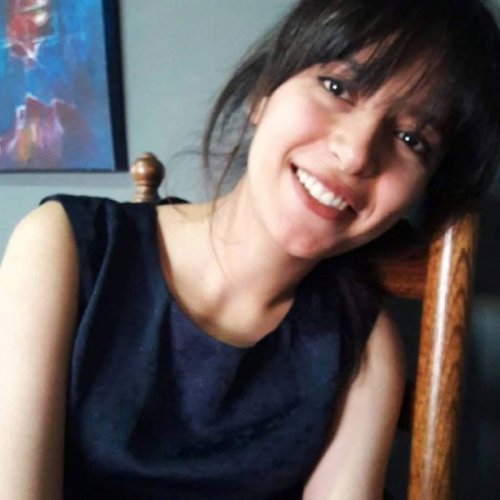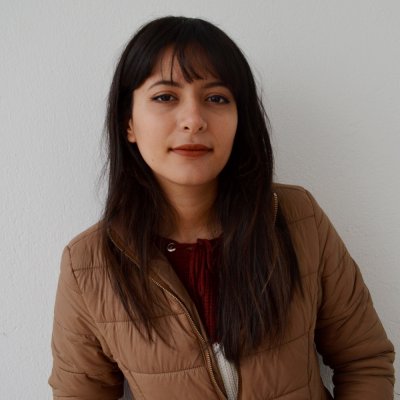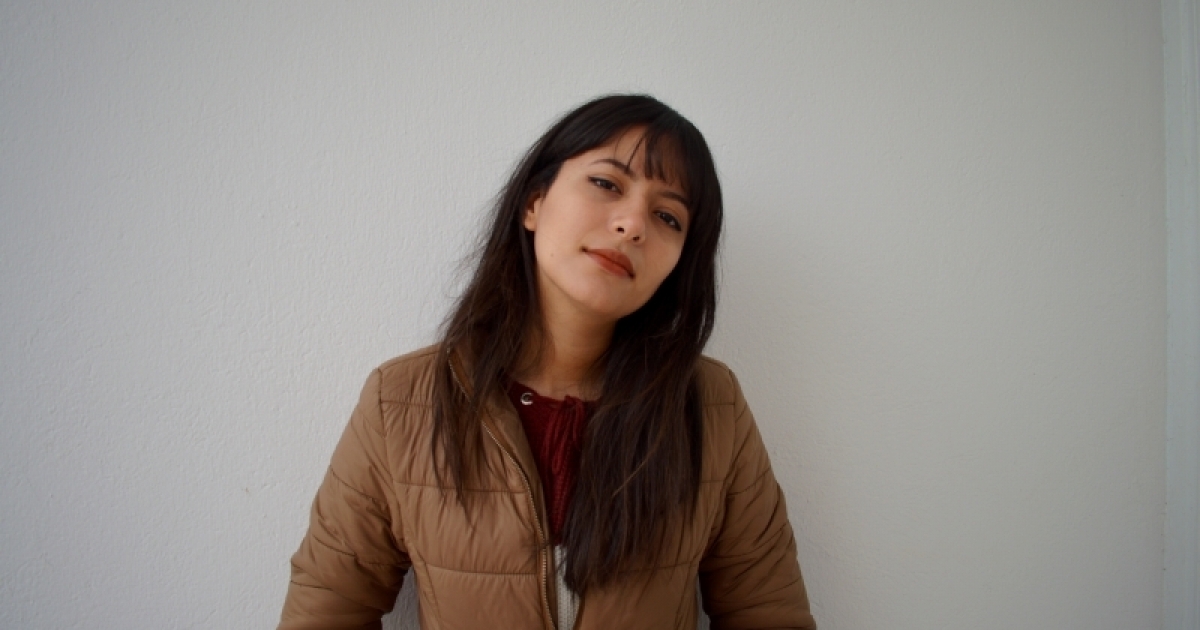“My Mentor Helped Me to Have a Clear Vision of My Actual Goals”
Nourhene Jaouadi is an articulate, innovative and reliable person who can add a special spirit to everything she puts her hand in, all with ensuring a high level of professionalism and enthusiasm. Nourhene is an industrial engineering student at the Higher Institute of Applied Sciences and Technology of Sousse, Tunisia. She is passionate about giving back to the community and is a social activist. Thus, she organized awareness campaigns in her university to promote equal rights and advocate the importance of contributing to the advancement of the community. Through these experiences, she developed a deeper understanding of project management and gained leadership skills.
Q: Tell us a few things about your country, and also your life's story!
A: Tunisia is a North African country with a rich and diverse history. In 2011, Tunisia was the first country in the Mena region to lead a revolution and have a successful democratic transition. The country has since been through various economic challenges. However, I'd like to think that we are, as a country and nation moving steadily towards a bright future.
I was born into a middle-class family after the death of my father. I grow up with my older sister and my mother. Throughout my upbringing, I was constantly surrounded by strong independent women that helped shape the person that I am today. I've excelled in my education and was admitted to the Elite High School of Kairouan after passing a national test. I've majored in mathematics and graduated with honour. After high school, I pursued engineering studies. In my third year of engineering studies, I decided to venture into social work, extracurricular activities. I started working part-time as the chief editor and translator of the website mina7.net. Later I joined the Scientific research association and Innovation in Computer science as the international project manager.
I volunteered as a country ambassador for Youth Opportunities for the year 2018-2019. Furthermore, I am the communication manager of Enactus Issatso. Very recently, I started working as the strategic marketing manager for iMaxeam. I must admit, I find great satisfaction in volunteering, organizing awareness campaign and contributing to the development of my society. Very recently, I've been very intrigued by entrepreneurship as I participated in the Spark Entrepreneurship Summer program of 2019. I am currently a senior in industrial engineering studies at the Higher Institute of Applied Sciences and Technology of Sousse. It is both exciting and stressful, knowing that I'll be graduating from university in a few months.
However, I'm looking forward to what the future holds.
Q: What is your view of the world as it is today? And how do you define the concept of a better world?
A: I believe that our world today is a cruel one. However, it is witnessing an awakening. After years and years of corruption, excessive use of natural resources, racism, wars, pollution, we are finally witnessing, what I would like to call an environmental and political revolution. In the Mena region, Democracy is finally celebrated and the people are no longer afraid to speak up for their rights. This signifies a great level of awareness within the youth and the population of the MENA region. Therefore, I can only predict future prosperity for the Arab world. When talking about the environment, a youth movement led by the one and only Greta is getting a great response. More companies and organizations, as well as public personas, are joining the campaign of advocating environmental friendly products and behaviours. However, it is still not enough considering the great risks that we are facing.
My definition of a better world would it, a place where no one would go to sleep hungry, where everyone would have access to free inclusive education, with no discrimination. A place where weapons will have no reason to exist, communication and diversity is celebrated.
Now, the sudden burst of private institutions with high budgets created a visible gap between the private and the existing public education system. With the important list of opportunities, quality of education, high technologies that the private sector offered in comparison with the deteriorated public system, the balance shifted towards private having a better reputation. This causes a great issue. Instead of having education accessible to all with no exception, it is becoming more and more limited to those with financial resources. Furthermore, this rising issue caused students and youth to migrate toward European and western countries where they felt valued.
Q: As a woman what are a few of the hurdles that you had to overcome up until today?
A: As a woman in an Arab country, it is almost impossible to avoid judgment and the overwhelming challenges that society has established. However, after my travels to Egypt and Jordan, I believe that women in Tunisia have a great advantage without even acknowledging it. Nevertheless, I was raised by a single mother with no man figure in our lives. Being a single mother in our society is challenging, people tend to think that single mothers are an easy target. Perhaps, one of the very first obstacles is having very limited freedom. Reputation is highly important and being a woman raised by a single mother, I had to limit my freedom even more than any regular woman. The goal was and still is to showcase my strength as an independent woman and to never be looked down upon just because I didn't have a "father" or a male figure in my life. I do realize, now that I'm older, that people's opinions and judgments are irrelevant and caring about it would only hold me back from achieving great things. However, growing up, every single step I made had to be calculated a thousand times. I believe that highly contributed to my social anxiety as a grown woman. However, now, in my 24 years of age, and in our current society; I find a great deal of acceptance and openness. To be completely honest, the challenges I faced are not because I am a woman, but it had to do with the financial status and having no father figure in my life. I feel like my conditions made me appear as easy prey. However, I think those same challenges forced to be the strong loud and proud woman that I am today.
Q: Why is the role of a mentor important for you?
A: Even though I was raised by a single very strong and independent woman, my mother sadly never got her education. Therefore, she had small knowledge about the things that I am passionate about and want to pursue. I've always felt lost, disoriented and overwhelmed. I tend to have endless choices and ideas and I get lost in the mix. A mentor figure is highly needed for me. To have an outside opinion of someone with an important experience that has probably been through what I am currently going through is much needed. I feel like a mentor is someone that can help organize the mess and shed light on the things I've been neglecting but must pay great attention to.
Q: Do you have a lesson that life has taught you and you would like to share?
A: This is a lesson that I am currently learning the hard way. Nothing is more important than your personal mental stability and well-being. Acknowledge your flaws and embrace them so they can become your strength. For years, I've let toxic people surround me, judge me and make me feel unworthy or that my ideas are of no value. I now realize that I've let those negative opinions affect me and how I valued myself. I remember clearly my very first conversation with my mentor. She told me to focus on my goals and aspirations, to detect toxic people that will tear me apart or hold me back and surround myself with positive like-minded people. I hope that others learn this lesson at a very early stage of life, as it can hold you back from achieving great things.
Q: Name a project, a foundation or a person in your country that you think is doing great work in helping improve other people's lives!
A: L’Ellethom is an initiative led by a group of Tunisian young people who dream of better economic and social conditions for Tunisian women, particularly those who live in remote areas. The initiative aims to help women from rural regions who have project ideas and don’t have the financial means or technical knowledge to start their owns businesses. Their main goal is to create an impact on the lives of these women and in the Tunisian entrepreneurial ecosystem. This initiative is the result of the business competition organized by the United States Department under the name of the Alumni Engagement Innovation Fund (AEIF).
Q: What are some of the challenges that women in your country face and what efforts are made towards gender equality?
A: Rural women in my country are faced with a list of serious problems and challenges on a daily basis. They have very low daily wages, no life/health insurance and are getting paid less than men working in farming in addition to being exploited. Few organizations and initiatives have been led to shedding light on the struggles of the rural Tunisian women by advocating their right in health insurance and equal wages. Few charities have led women empowering initiatives in addition to providing financial support to those women in order to launch their own projects.
Q: Athena40 is the first ever global selection of the top 40 women forward thinkers, commentators, activists, authors, academics, entrepreneurs, executives, innovators. Can you think of a truly innovative and forward-thinking woman from your country that you wish to nominate for the Athena40 global list?
A: Olfa Hamdi is a recognized international researcher in the field of project management, independent consultant, founder of the Advanced Work Packaging Institute, co-founder of The Institute of Management and a tech entrepreneur in project management technology solutions. She holds a Master of Science in Capital Projects’ Management from The University of Texas at Austin, a Master of Science in Engineering from Ecole Centrale de Lille, and a graduate degree in Alternative Dispute Resolution for construction disputes from Texas School of Law. She is a fellow of the State Bar of Texas Construction Law section. Olfa has numerous publications in prestigious academic and professional journals as well as media outlets. Olfa speaks four languages and is a firm believer in the role of interdisciplinary research in driving capital projects effectiveness and project management knowledge sphere expansion.
Q: Share with us a phrase, a poem or a story that you love or you find interesting!
A: "Seeing a version of the world that doesn't exist yet, and then painting a picture of what this looks like for the rest of the world" - Rana el Kaliouby
Q: Tell us one thing that you have learned from your mentor.
A: There are various important lessons that I had the honour of learning from interacting with my mentor and perhaps one that I feel helped me make the most change in my vision and actions. It is as simple as organizing my priorities. My mentor helped me realize the importance of having priorities and organizing my goals accordingly whilst adapting them to my needs. This made a huge difference as it allowed me to have a clear vision of my actual goals and establish a clear plan of work.




